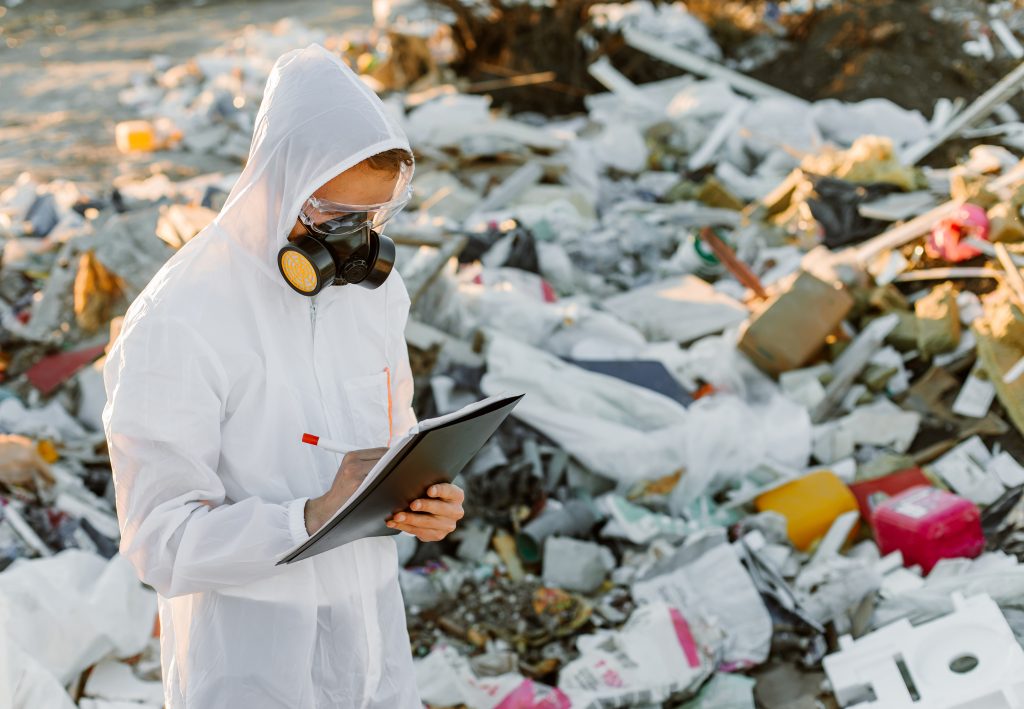Biodegradable polymers are the stuff of legend because they are supposed to answer the world’s plastic problem. But what happens when it reaches a landfill instead of an industrial composting facility? Let’s find out.
With a looming plastic crisis on our hands, the world is turning to biodegradable plastics, especially biodegradable plastic packaging, to arrest the onslaught of polymers that can’t be recycled properly or can’t be recycled at a rate that will reduce plastic’s impact on the environment as a whole.
Compostable plastic is one of the more hopeful developments in the last century, as they help divert some of the waste being brought to landfills. How does biodegradable plastic decompose? Do biodegradable plastic bags break down like banana peels and other kinds of food waste?
Do Biodegradable Bags Decompose in Landfill?
No, biodegradable bags will not simply rot or decompose like other organic materials in a landfill. The reality is that manufacturers can get confusing when marking their products, so the bio-based plastics in your neighborhood may not even be truly compostable.
Putting “environmentally-friendly” on a bag of plastic bags does not automatically mean that those bags will decompose. There are only three classes of biopolymers that will break down properly in the right conditions. Those marked with “biodegradable” or “100% biodegradable” and those marked with “home compostable” or “industrial compostable.”
In the US and the UK, sorting policies are stricter, so polymer-based products are marked more accurately. Sometimes, however, even that effort needs more work. The recycling rate never reaches 100%. There are still gaps in the workflow that gets the recyclable materials to the right facilities.
We can say that it’s the same problem for biopolymers marked with either compostable or biodegradable. There is no method to get all of those plastics back once sold in stores and supermarkets. There is always a portion of it left behind, usually ending up in landfills and, in other moments, in the seas and oceans.
Biodegradable bags are the most ubiquitous because people carry everything in plastic bags. We produce more plastic bags than anything else in the world. Plastic bags will easily outnumber other kinds of products made with any polymer. With this in mind, it’s important that we can reel in our plastic consumption, so we don’t end up with even more plastic bags polluting our waterways and land.
Perhaps, the first big step is understanding that even the highest quality biodegradable or compostable plastic bags will not degrade in landfills. Why? Because they require specific conditions before they can begin to break down. Until those conditions are met, these biopolymers are going to behave pretty much like conventional polymers. What does this mean?
When biopolymers are made, they have to have the same structural and mechanical integrity and durability as classic or traditional polymers. Otherwise, we won’t be able to use them in the same manner as conventional plastics. Therefore, they have to behave like regular plastics when they’re still in use. It gets complicated when the plastic reaches the end of its life, and you now have to dispose of the plastics. Is there a proper sorting method in your city? Will you bring your biodegradable or compostable plastics to a curbside spot where the biodegradable plastics can be deposited and then sorted for industrial composting?
It’s not enough for people to have access to these new biopolymers. There also has to be a system that will take care of the waste material at the end of its life. If not, these biodegradable plastics will end up in landfills like the other plastics we have now, and they’re not going decompose there.
How Long Does Biodegradable Plastic Take to Break Down?
When sorted and properly composted in the right facility, biodegradable and compostable plastics will only take about three to six months to return to their basic states after decomposition. The composting process is not the same as what we do in our backyards, so it doesn’t happen as quickly, and it’s better to call the process by its real name biological treatment.
Biological treatment is science, and it takes some time for the biological treatment to take effect. Once the biological treatment starts, it will take a period of waiting for the bacteria to finally interact with the bioplastics finally. Then that’s when things will start to get drastic. Once the resin’s surface has been breached by the bacteria, moisture, and air, it will begin to break down, and finally, the decomposition begins.
How Long Does It Take Plastic to Degrade in A Landfill?
Degradable plastics can take a few months before they can fully degrade. However, degrading is not the same as decomposition. It’s just physical degradation, where the physical structure melts. The plastic’s chemical integrity remains the same, and that’s why degradable plastics don’t address plastics’ problems. They introduce a new problem to the equation. How do we get rid of the toxic sludge that is left behind by degradable plastics? We must know how to get rid of the byproducts of plastics, too.
If we look at conventional plastics, or those that were developed decades before degradable plastics were researched, then those things will not degrade any time soon. Even organic matter in landfills takes very slow to degrade. Why? Because there’s barely any air in landfills, and there is no air, the aerobic bacterial activity cannot work properly. The breakdown of organic matter requires the help of both anaerobic and aerobic bacteria. If there is no oxygen in the equation, then the breakdown will take place ever slowly. Some scientists have examined biodegradable objects in US landfills, and they’ve found out that stuff thrown out in the 1940s was still intact. We’re talking about hotdogs, corn cobs, and even newspapers. Newspapers remained largely readable after several decades, even though the paper is supposed to break down properly after a few months only.


